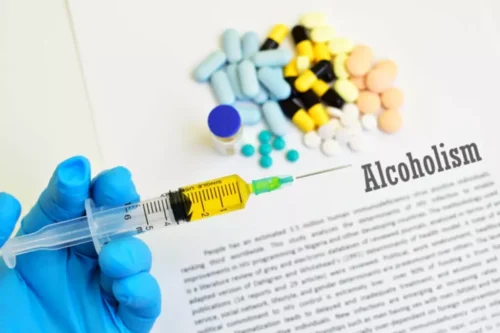
We publish material that is researched, cited, edited and reviewed by licensed medical professionals. The information we provide is not intended to be a substitute for professional medical advice, diagnosis or treatment. It should not be used in place of the advice of your physician or other qualified healthcare providers. At the New England Recovery Center (NERC), our addiction treatment program helps people identify their individual triggers and learn coping skills and other tools for managing them. By staying aware of their surroundings and paying attention to their emotional responses to stimuli, people in recovery have a better chance of reacting adequately to hidden relapse triggers as they arise. And by talking to a support group or mental health professional about how a trigger makes one feel, it can help to process the trigger and establish an effective response.

SMART Recovery vs. A.A. – Is One Better?
- Maintaining one’s recovery despite the existence of triggers can be overwhelming at times.
- And by talking to a support group or mental health professional about how a trigger makes one feel, it can help to process the trigger and establish an effective response.
- Trial and error can help each person determine what works best for them.
- Understanding how these triggers affect you is vital to avoid potential relapse.
- We propose you take a moment to learn about how addictive triggers can impact your life.
Feeling triggered isn’t just about something rubbing you the wrong way. For someone with a history of trauma, being around anything that reminds them of a traumatic experience can make them feel like they’re internal vs external triggers experiencing the trauma all over again. Triggers refer to the experience of having an emotional reaction to a disturbing topic (such as violence or the mention of suicide) in the media or a social setting.

What is Sexual Sobriety and Why Is It Important
Former drug or alcohol users are in denial during emotional relapse, but they do not have thoughts of using. They are ashamed of the last time they relapsed and may have developed negative behaviors to cope with their thoughts. This state of mind is dangerous because it encourages bad health practices that can eventually lead to a full-blown https://ecosoberhouse.com/ relapse. People at risk of a relapse should avoid stressful situations that are likely to push them to use drugs and alcohol. If you or a loved one struggles with addiction to drugs or alcohol, you are not alone. At Canyon Vista Recovery Center, located in Mesa, Arizona, you will learn the skills needed to gain sobriety.

Learn about some common triggers that raise the risk of relapse and how they can be avoided.
Internal triggers are emotions, feelings, thoughts, and memories that make the person want to use alcohol or drugs. It is more difficult to deal with internal triggers than with external ones. For example, they may not be able to control their thoughts or how they feel. It is easier to avoid a particular person or situation than to avoid feeling angry, sad, or depressed. Sometimes it is impossible to avoid experiencing an emotion, change how you feel, or stop yourself from remembering a certain memory. When it comes down to situations, everyone handles adversity differently.
- For those struggling with substance abuse and addiction, it isn’t uncommon for the affected person to return to alcohol or drug use.
- Because of this, there isn’t one “right” way to successfully respond to or protect oneself from a trigger.
- Mental relapse, or relapse justification, is the continuous fight between wanting to use and knowing you should not use.
Take The First Step to a New Life
Because many people begin using drugs to manage pressure, they might not know how to handle stress triggers if they haven’t developed other coping mechanisms. For example, powdered sugar can elicit an urge for drugs in someone who used cocaine. For example, if you used drugs every time you were with a specific group of people, you might feel triggers whenever you’re in the same social situation. If you always cracked open a beer after you came home from work, took off your shoes and sat down in front of the TV, that routine may give you the urge to drink. Like Pavlov’s dogs, which learned to salivate when they heard a bell ringing, people with addiction learn to crave drugs as a response to certain situations.
- These triggers may involve people who influence cravings, such as drug dealers, coworkers, friends, spouses, partners and employers.
- Though commonly used to refer to the experiences of people with post-traumatic stress disorder (PTSD), the term «trigger» can also be used in the context of other mental health illnesses.
- These triggers are the thoughts and feelings you have that can cause a desire to return to use.
- If you struggle with relapse, it might be beneficial for you to attend an aftercare recovery program.
Types of Addiction Relapse Triggers
- Asking certain questions about external triggers can help prevent relapse.
- Relapses are relatively common, and how you manage them is paramount for your long-term recovery.
- The way that the brain links memories is a powerful tool that is used to help you recall important information, but that may also affect your recovery process.
- In many cases, when you feel “normal” again, you might be overly confident that you can handle being in situations that serve as external triggers.
